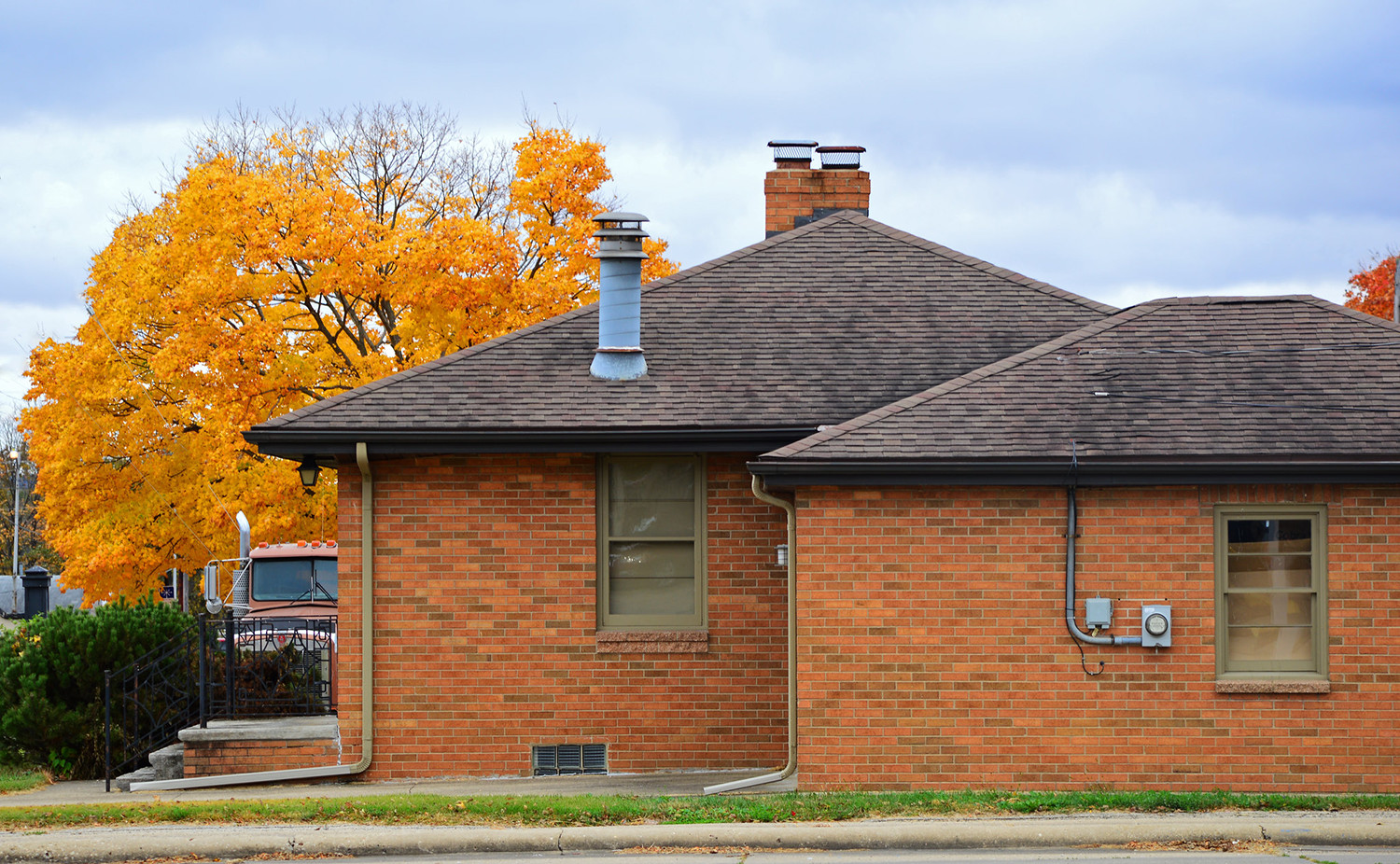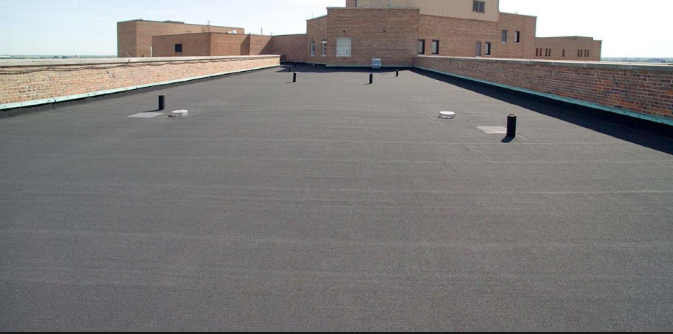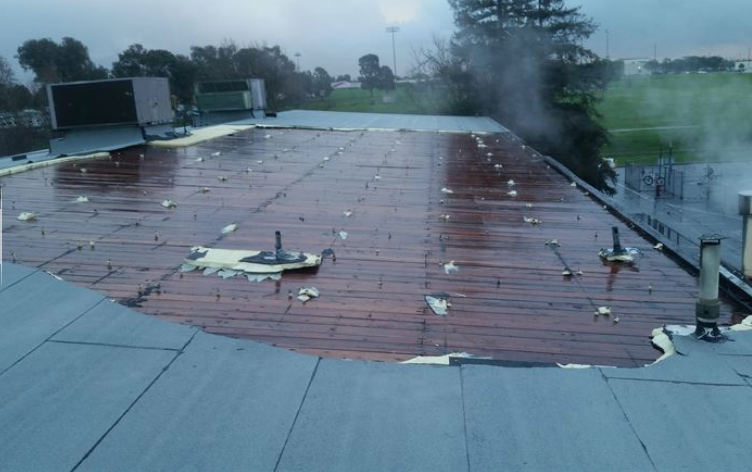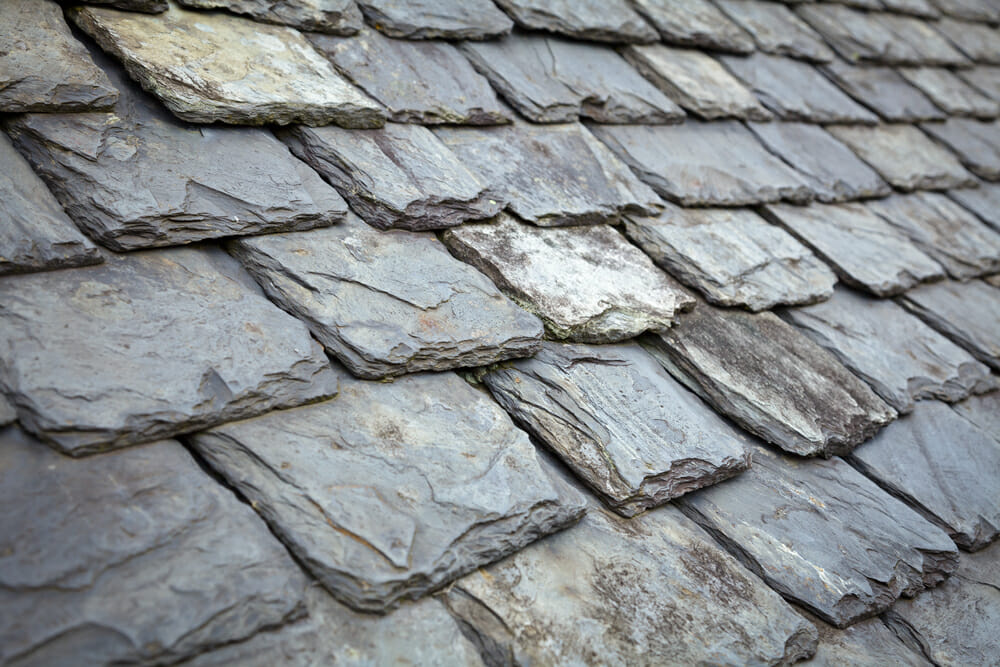Components of a Residential Roof System
There’s a lot more to the roof of your home than what meets the eye.
Hidden from sight are layers of materials that are critically important to the integrity and stability of your roofing system. Every component of a residential roof does its part to keep you and your loved ones safe.
If any of these components wear out, break, or malfunction, consider contacting an experienced roofing contractor to determine if your roof needs repair.
8 Essential Parts of a Residential Roofing System
There are several components of a residential roof system—and each part has an important role in protecting your home.
1. Rafters and Purlins
Rafters and purlins are a series of structural beams that provide the main support for the roof load. While rafters extend vertically from the peak of the roof to the roof’s edge, purlins are horizontal and connect the rafters together, providing additional stabilization and strength for the roof’s frame.
Well-constructed rafters and purlins are especially imperative in areas prone to strong winds, like Chicago.
2. Decking
The roof decking, sometimes referred to as sheathing, acts as reinforcement for the roof structure. It is used to cover the rafters and purlins and provides a surface to fasten the underlayment and covering.
It can be made from a variety of materials, but the most popular choice is sheets of plywood particle board because they are quick to install.
3. Underlayment
For an additional layer of protection between the roof’s decking and covering, a thin waterproofing membrane called the underlayment can be installed on top of the decking. Underlayment helps protect the roof from water, air, and other elements, serving as a second barrier if water gets under the shingles.
Homes in regions vulnerable to ice and rain can greatly benefit from ice and water shields that are designed to protect your roof from heavy snowfall, ice damming leaks, and excessive rainwater.
4. Covering
When you look at the roof of a home, what you see is the roof’s covering. This covering is the first layer of protection for your home and defines the style of the roof.
There are a variety of materials used to cover residential roofs, including asphalt shingles, ceramic tiles, metal, slate, and wood shakes.
5. Flashing
Flashing is a type of material installed where two different parts of your roof intersect or around areas of your roof that would otherwise be prone to water intrusion or weather damage. Often made of rust-proof steel or rolled metal sheeting, flashing helps deter leaking around chimneys, valleys, skylights, venting, or areas where the roof meets the siding of your home.
Damaged or worn-out flashing needs to be repaired to prevent leaking, but it’s relatively easy to fix.
6. Fascia
The fascia is a long board that is installed horizontally along the edge of the roof. It’s commonly called the transition trim because it connects the home to the roofline and makes the roof appear finished.
This roof component serves a dual purpose: providing a stable mount for the gutters and closing the gap between the roof and the attic.
7. Gutters and Downspouts
Gutters are metal troughs that direct rainwater and precipitation away from the edge of the roof and the siding of your home. They connect to downspouts, which funnel the water away from the foundation.
Together, gutters and downspouts protect your home from cracking or soil erosion and help keep your basement dry.
8. Insulation and Vents
Insulation and ventilation systems reduce heat and moisture buildup in your home’s attic. It’s vital to have air flow to keep humidity and condensation from damaging your roof and to keep your home cool. Roof vents, intake vents, and insulation work together to ensure your attic is well-ventilated and effectively sealed.
When to Upgrade or Repair Your Residential Roofing System
If you are familiar with the many different components of your residential roof, you will have a better understanding of what parts may need to be replaced or repaired when problems arise. You may also get an idea of how you can upgrade your roof to be more energy efficient.
When you encounter roofing issues or want to invest in upgrades, ask an experienced roofing professional to conduct an inspection. They can help you determine the best way to repair, replace, or upgrade your roof.
Contact Champion Roofing for Your Chicago Residential Roofing Needs
For over 30 years, Champion Roofing has been a recognized leader in the Chicago roofing industry. Our professional roofing contractors offer a range of services, including roof inspection, maintenance, repair, and replacement—all featuring the high-quality work that comes with decades of experience serving residents in the Chicago area.
The Champion Roofing team is ready to help you repair, replace, or upgrade your roofing system. Whether you need to install gutters, repair damaged shingles, or entirely replace the roof of your home, we are here to guide you every step of the way.
Contact us today to get a free quote. Your roof is worth the investment.
.png)



